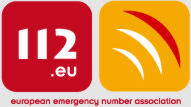Why the Commission is not dealing with the 112 in a citizen-friendly way
When in 1989 the European Commission first proposed the creation of a single European emergency call number, its main argument was to serve Europe's citizens moving around in the single market created on the basis of the Single European Act, the work of then president Jacques Delors. However, the Commission neither promoted nor enforced the implementation of the 112 number. On the contrary, it left the issue almost unattended and thus the last Member State to report implementation was Greece in 2000 instead of the initial deadline of 1992 (and for countries asking for a derogation 1996). In fact the Commission even went so far as to report again and again to the European Parliament and the Council that the implementation of the 112 never faced a problem.
The first Eurobarometer on the knowledge of the 112 was conducted in 2000 and the results announced in May 2000 in the context of the first workshop on this issue ever held by the Commission (in collaboration with Luxembourg). The results, 9 years after the establishment of the 112 were unacceptable - only one in every five European knew about the existence of the 112 and they were mostly people from the Scandinavian countries, the Netherlands and Portugal which have established the 112 as their unique national emergency call number. The proposals of the workshop were introduced in the new Universal Service Directive (article 26)and became EU laws in 2002 (Member States were obliged to transpose them by 2003). They included mainly the obligation for transmiting caller location information and for informing citizens about the existence and use of the 112. The older obligation of 1991, that calls to the 112 should be «appropriately answered and handled» was just carried over without changes. And in 2003 an evaluation of the complete 112 service chain conducted in Portugal (which was considered a model country as far as the implementation of the 112 was concerned) showed catastrophic results : 20% of calls in French, 29% of calls in English, even 15% calls in Spanish and Portuguese, never received help on the spot of the emergency!
At the same time several complaints were introduced with the Commission either through parliamentary questions or through the EENA (which introduced a series of complaints beginning 2004). Now the Commission adopted a different approach. The Parliament was told that there were too many problems to launch an information campaign. And that the Commission was only competent to ensure that calls were «appropriately answered and handled» as far as the telecommunications component was concerned. If the call is answered by somebody, the Commission is happy, no matter if the victim dies because the call wasn’t properly handled and help never arrived. The Commission even declared itself incompetent to deal with the full 112 service chain, because, it said, emergency services do not fall under its jurisdiction but are under the sole responsibility of national governments.
So is the Commission incompetent? Certainly not. The existing Treaty (articles 152, 153) provide that all Community policies should ensure a high level of human health and consumer protection, something that is not really ensured when the Commission declares that the 112 is a purely telecommunications issue. When the Commission is launching initiatives for the protection of minors from the harmfull content available on the internet, or for the regulation of smoking and deep sea fishing,victims of accidents who call the 112 certainly deserve a better service.
Is the Commission indifferent? One could hardly say so. Following the complaints of the EENA the Commission opened several infringement procedures against Member States which have not yet implemented the transfer of caller location information to the emergency services. It also launched (and relaunched) eCall, an ambitious project aiming at installing from 2009 onwards (now from 2010) on every new car a system which would call the 112 in case of a crash. And in 2005/2006 launched a new Eurobarometer survey which shows that only one in every three Europeans is now aware of the 112, a significant improvement compared to the survey of 2001 (although the questions asked were smoothly guiding the answers ...).
And is the Commission cynical? Oh yes! And very much so! In fact it is pushing only for the issues that concern industry (telecommunications for localization and car industry for eCall), ignoring the services provided to citizens. Each time the EENA tries to bring the issue of evaluation of the 112 service chain from the citizens' point of view or the issue of informing the public about the existence and use of the 112, the Commission's reply is a categorical NO - while all the Commissioners pay lip service to the need for initiatives to bring Europe nearer to its citizens. At the same time, while implementation of the (obligatory) 112 is lacking, the Commission rejoices about the creation of (non obligatory) «services of social value» for important, but non the less marginal, emergencies.
EENA believes that only when citizens start showing interest in their proper protection, the Commission will start paying more attention to the proper implementation of the 112 in the EU. We invite you to sign the petition and ask your friends and relatives to sign too! And, if you are still alive, please tell us your (happy or sad) personal story on the service you got when you called the 112. We will transfer it to the Commission in the context of a complaint - the Commission cynically pretends that it does not receive enough complaints on this issue ...
Wednesday, 14 February 2007
Incompetent, indifferent or just cynical?
Posted by eena112 at 2/14/2007 03:14:00 pm
Subscribe to:
Post Comments (Atom)

No comments:
Post a Comment